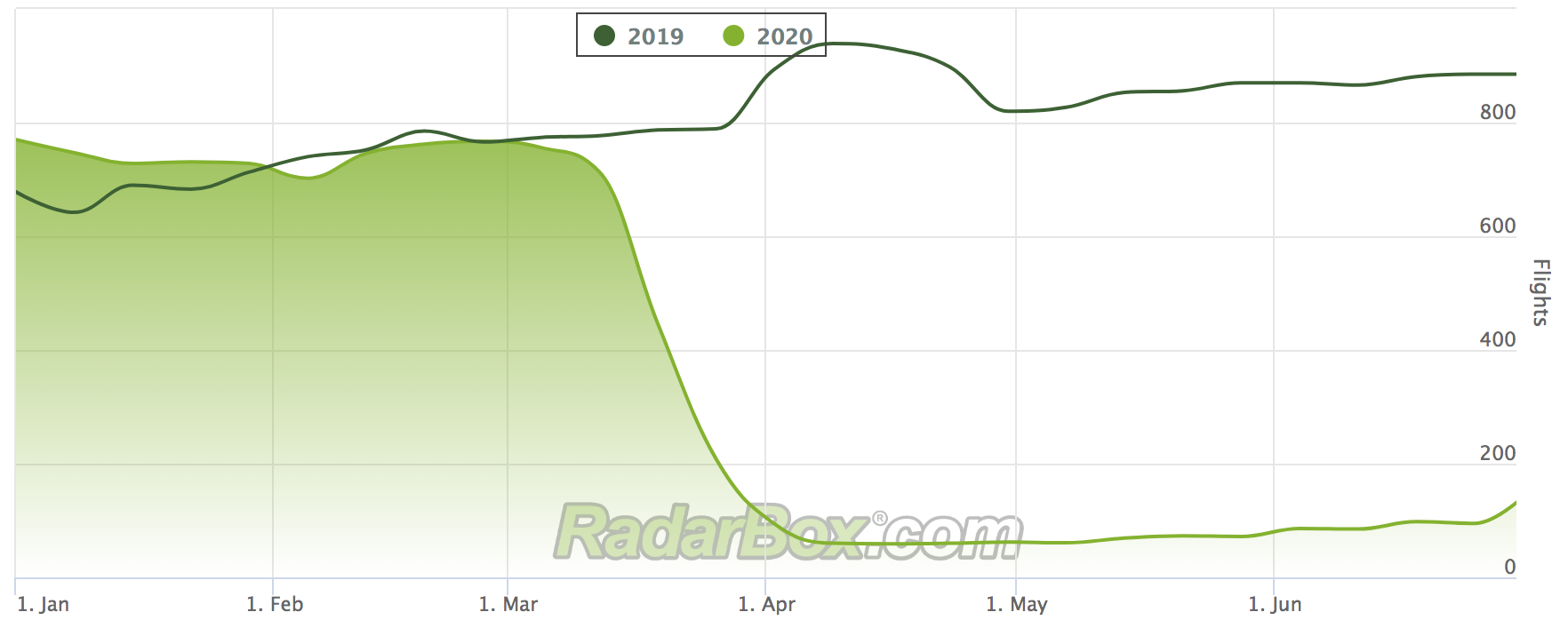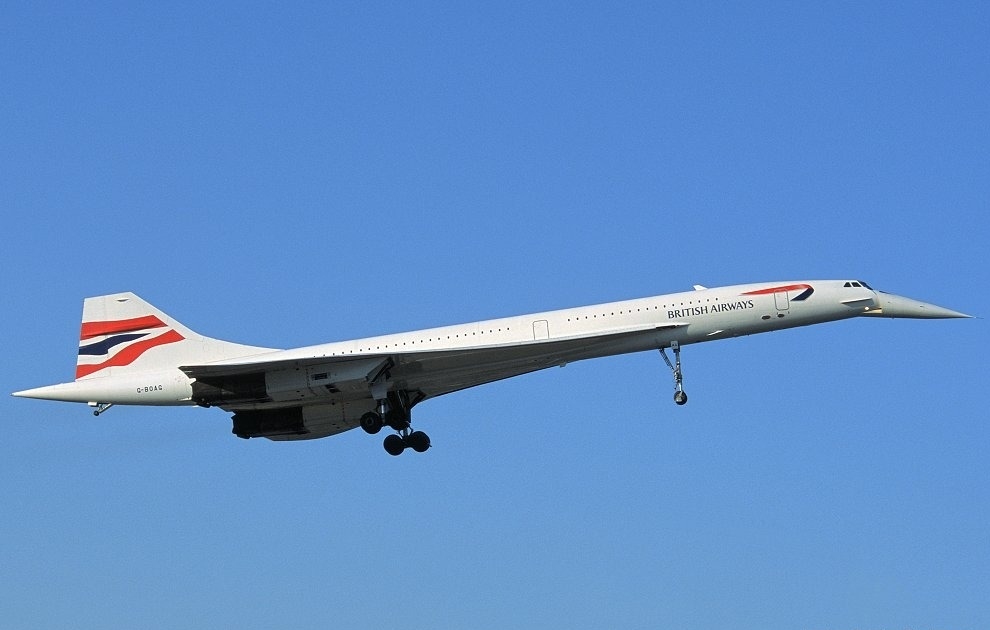Coronavirus Accelerates British Airways Retiring the 747 as Business Climate Shifts
British Airways announced it will immediately retire its entire fleet of Boeing 747 jetliners. The move comes amid a rapid decline in air travel, following measures imposed to tackle the Covid-19 pandemic.
Our data for BA indicates that the airline has made only a minimal recovery in the number of flights, after its operation was decimated by the Coronavirus Pandemic in March.

(Above: BA flights in 2020)
British Airways had been the world's largest operator of the 747, boasting 31 in its fleet of aircraft; approximately 10% of the overall British Airways schedule. But while British Airways already had plans in place to retire the aircraft in 2024, the downturn in air travel has forced the airline to accelerate its decision.
Further Retirements
BA is not the first airline to cease using the iconic 747. KLM, Delta and Air France have all recently retired their entire fleets of 747 jetliners, and other airlines are also easing out the four-engine behemoth in favor of more economical options. The crisis that coronavirus is causing for the industry means a future in which there will be fewer passengers and fewer planes - while keeping costs down will be crucial. We should expect more airlines to retire planes that underperform in revenue per seat and cost per hour of flight operation in the immediate future.
The decision of BA is particularly emblematic, as its close relationship with the 747 has been well-documented. Over the years, BA has flown 105 Boeing 747 aircraft, and was responsible for nearly 8% of the 400 Boeing 747 aircraft in service globally last month.
Long Haul Downturn
And with the airline industry having suffered a shuddering blow thanks to Covid-19, BA believes that long haul flights will take some time to recover.
“The whole airline community is reconciling itself to a bleak outlook for passenger demand. Long haul travel will take years to recover, with the major industry bodies agreeing that we will not see a return to 2019 levels until 2023 at the soonest,” the company commented in a memo.
This shifting climate has sounded the death knell for the 747, which has been converted into a largely business jet by BA in recent years. The airline had removed rows of economy seats from this aircraft in order to make way for more business customers, which are known to earn more revenue per cabin floor space.
And the decision made by BA also poses questions about the future of the A380. This Airbus flagship is the largest passenger airplane ever constructed,but it also suffers from similar fuel consumptions issues that have dogged the 747 in recent years.
Air France has already announced plans to retire its fleet of A380 aircraft, and now BA will also consider its position. At the time of writing, the airline has yet to commit to this, indicating that “no further decisions have been made at present”. And it is also notable that leading carrier Emirates remains committed to the A380.
BA also previously announced plans to purchase 200 Boeing 737 Max aircraft, despite this model having been grounded in 2019 following two fatal crashes. This deal points to BA evolving its strategy in the years to come, moving away from long haul travel and into the more affordable market occupied by companies such as Ryanair and Virgin.
Business Decline
And the Covid virus is only likely to accelerate this process, with regional and shorter routes likely to be more robust than longer passenger flights in the coming years. As the airline industry recalibrates its operation in the wake of the Covid-19 climate, carriers are increasingly preparing for a possible indefinite decline in business travel. Premium cabins are expected to be particularly strongly impacted, with finance, health issues, and environmental concerns all prevalent.
Willie Walsh, the CEO of British Airways, had already told investors in spring that the company would have to assess the “business mix between premium and non-premium”, predicting that the “mix is going to be different post [Covid], and to what we had seen before it.”
The decision of BA means that Lufthansa is now the passenger carrier with the largest number of 747 jetliners in operation, followed by Cathay Pacific. Atlas Air is the airline with the most active 747 aircraft, with the US cargo carrier currently having 38 in operation:
Historic Aircraft
The Boeing 747 first flew commercially in February 1969, becoming the first airplane to earn the moniker of 'jumbo jet'. British Airways began flying the 747 in the early 1970s, and had recently focused on the 747-400 version of the long-range aircraft.
While the 747 has been a hugely successful airplane for Boeing, transporting 3.5 billion passengers over the last 50 years – the equivalent of half of the world's population – it seems increasingly that the days are numbered for this aircraft that helped transform our notion of what long-haul flights could achieve.
As the airline industry continues to evolve during this unprecedented climate of change, the best place to keep abreast of all the latest trends and data is Radarbox.com.
READ NEXT...
 21719
21719Replay Past Flights with Playback
AirNav RadarBox officially launches the playback function on RadarBox.com, allowing users to replay the air traffic for a specific date and time in the past, within a 365-day period. Read our blog post to learn more about this feature. 12847
12847Some airlines are flying longer than usual
Following the war in Ukraine and the airspace restrictions due to the Ukraine-Russia conflict, several airlines have been experiencing increased operating costs with detours and consequently longer flights, generating more costs. Read our blog post to find out more! 9119
9119Taking a Trip Down Memory Lane: We Tracked Concorde!
A spotter in today's world would have reveled at the thought of being able to spot Concorde... Read our blog to find out more!
